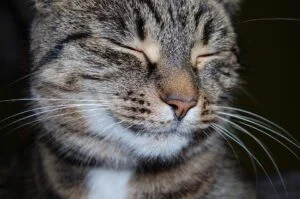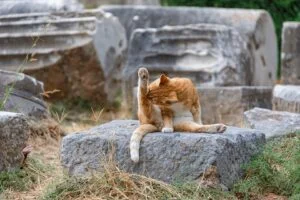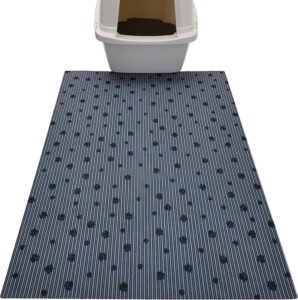
Introduction
Adopting a cat can be one of the most rewarding experiences, bringing joy, companionship, and a sense of fulfillment to families and individuals alike. However, beyond the initial excitement, potential adopters must consider the true cost of cat adoption. This includes not just the adoption fee, but also ongoing expenses such as food, healthcare, and miscellaneous costs. Understanding these financial commitments is crucial for ensuring a long-term, happy relationship with your new feline friend.
Adoption Fees
Shelters and Rescue Organizations
When adopting a cat, the first financial consideration is the adoption fee. Shelters and rescue organizations typically charge a fee that covers a portion of the costs incurred while caring for the cat. This fee can vary widely depending on the organization, the age of the cat, and any medical treatments the cat may have received. Generally, adoption fees range from $50 to $150 for adult cats, while kittens may cost more due to higher demand and additional veterinary care.
What the Adoption Fee Covers
Adoption fees often include several essential services:
– Spaying or neutering
– Initial vaccinations (such as rabies and feline distemper)
– Microchipping
– Basic veterinary examination
– FIV and FeLV testing
These services ensure that the adopted cat is healthy and ready for its new home, providing significant value compared to acquiring these services independently.
Initial Setup Costs
Beyond the adoption fee, new cat owners must prepare their homes for their feline companions. This involves purchasing necessary supplies, including:
Food and Water Bowls
Investing in durable, easy-to-clean bowls is essential. Stainless steel or ceramic options are recommended for their longevity and hygiene.
Litter Box and Litter
A sturdy litter box and quality cat litter are vital for maintaining a clean and odor-free home. Expect to spend $15-$30 for a good litter box and approximately $10-$20 monthly on litter.
Cat Tree and Scratching Posts
Cats need to scratch to maintain their claws and mark their territory. Providing scratching posts or a cat tree can prevent damage to furniture and satisfy your cat’s natural instincts. Prices vary, but a decent cat tree can cost $50-$150.
Bed and Toys
A comfortable bed and a variety of toys are essential for a cat’s comfort and mental stimulation. Budget around $20-$50 for a cozy bed and $10-$30 for toys.
Ongoing Costs
Once the initial setup is complete, cat owners must consider the ongoing costs associated with cat care.
Food
Quality cat food is crucial for maintaining your pet’s health. Whether you choose dry kibble, wet food, or a combination, expect to spend between $20 and $50 per month on food, depending on the brand and your cat’s dietary needs.
Veterinary Care
Regular veterinary check-ups are essential for keeping your cat healthy. Annual exams, vaccines, and preventive care (such as flea and tick prevention) can cost around $100-$200 per year. Additionally, dental care, which is often overlooked, may require a yearly budget of $100-$300.
Unexpected Medical Expenses
Cats, like all pets, can experience unexpected health issues. Emergency vet visits, surgeries, or treatment for illnesses can quickly add up. It’s wise to set aside an emergency fund or consider pet insurance, which can cost $10-$30 per month, to help mitigate these potential expenses.
Grooming
While many cats groom themselves, long-haired breeds may require regular grooming sessions to prevent mats and tangles. Grooming costs can range from $30 to $70 per session, depending on the service.
Miscellaneous Costs
Pet Insurance
As mentioned earlier, pet insurance can be a worthwhile investment to cover unexpected medical expenses. It provides peace of mind and financial relief in case of accidents or illnesses.
Boarding or Pet Sitting
If you travel frequently, consider the cost of boarding or hiring a pet sitter. Boarding facilities can charge $15-$30 per day, while pet sitters may charge $10-$25 per visit.
License and Registration
Some municipalities require pets to be licensed. License fees are typically nominal, ranging from $10-$20 annually.
Time Investment
While not a financial cost, the time investment involved in caring for a cat is significant. Cats require daily feeding, playtime, and attention. Litter boxes need regular cleaning, and grooming may be necessary. Understanding this time commitment is crucial before adopting a cat.
Financial Assistance Options
Low-Cost Clinics and Resources
For those concerned about the financial burden, many communities offer resources such as low-cost veterinary clinics, food banks, and assistance programs for pet owners in need. Researching and utilizing these resources can help reduce overall expenses.
Adoption Events and Discounts
Many shelters and rescues host adoption events where fees are reduced or waived. These events provide an excellent opportunity to adopt a cat at a lower cost.
Conclusion
The decision to adopt a cat is a significant commitment that extends beyond the initial adoption fee. By understanding the true cost of cat adoption, potential cat owners can prepare financially and ensure they provide a loving and stable environment for their feline friends. From initial setup costs to ongoing and unexpected expenses, being fully informed allows for a rewarding and stress-free adoption experience. Whether through budgeting, exploring financial assistance options, or investing in pet insurance, responsible pet ownership begins with understanding and planning for the true cost of cat adoption.
Final Thoughts
Adopting a cat is a journey filled with joy and companionship. By considering the financial aspects and preparing accordingly, you can ensure that your new feline friend is a cherished and well-cared-for member of your family for years to come.





